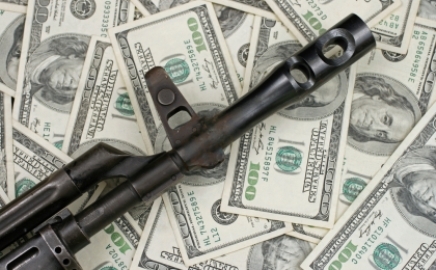S. Sudan does not keep oil revenues in central bank: report
August 30, 2017 (JUBA) – South Sudan government does not keep revenues acquired from the sale of its oil resources in the country’s Central Bank, a new parliamentary committee report has shown.

This revelation shocked members of parliament and the general public.
“We were surprised as the leadership of parliamentary committee responsible for finance and economic planning when we carried out the research. We found out the revenues accruing from oil are not deposited into the Bank of South Sudan”, a lawmaker, who preferred anonymity, told Sudan Tribune on Wednesday.
“This means there is nothing being kept by the central bank and it has no use. What we were made to understand is that the central bank keeps only the local pound and may be some funds from international organizations and banks. It is an unusual situation world over. The bank literally has no reserves as I talk to you. It is empty. Whatever was there before the war has been depleted”, he added.
Another equally shocked lawmaker said the parliamentary committee had, during the last budget debate, recommended coordination between the ministry of finance and the Central Bank.
“What was discovered by the committee to the surprise of the house is contrary to usual custom where the Central Bank is the custodian of the government money.
This, in consequence, has deprived the Central Bank of hard currency inflows, despite the memorandum of understanding signed between the Ministry of Finance and Planning and Bank of South Sudan on the custody of all foreign currencies in the country,” the lawmaker separately told Sudan Tribune.
“The committee directs the ministry of finance to respect the content of the memorandum of understanding” he further observed.
The committee, the legislator said, invited the Governor of the Bank of South Sudan (BSS) and his technocrats on Thursday 17, August 2017 to come and explain the monetary policies of South Sudan.
“This is because any economic stabilization policy requires the harmonization of fiscal and monetary policies to create the necessary synergy for reversing inflation, exchange rate and unemployment,” explained the lawmaker.
He, however, disclosed that during discussions with members of the Central Bank, the committee learned that the finance ministry prepared the FY 2017/18 budget minus involving Central Bank staffs.
“We have reason to believe that this practice hinders the harmonization of fiscal and monitory policy necessary to control inflation, prices and exchange rates. The Committee, therefore, directs that the Ministry of Finance and BSS coordinate all the Budgeting process together as a matter of law and practice”, the committee note in an explanatory note,” he further stated.
South Sudan, heavily reliant on oil revenues to fund its budget, is one of poorest countries in the world with worst indicators on development, health and education.
The East African nation is experiencing high inflation, with severe fuel shortages, consumers queuing for hours outside fuel stations and often paying way over the new prices for black-market products.
The conflict, which broke out in 2013, has negatively impacted on the country’s citizens, including pushing the country to the brink of famine with 5.8 million people, almost half of the population—in desperate need of humanitarian assistance, according to a United Nations assessment report.
Observers say despite being oil-rich, South Sudan is likely to record negative Gross Domestic Product (GDP) growth in 2017 after growing by 30.7% two years ago, largely due to the conflict, declines in its oil production and global fall in oil prices.
(ST)
